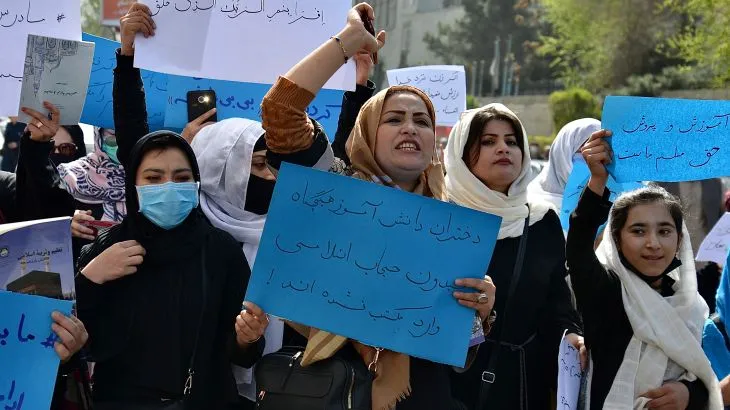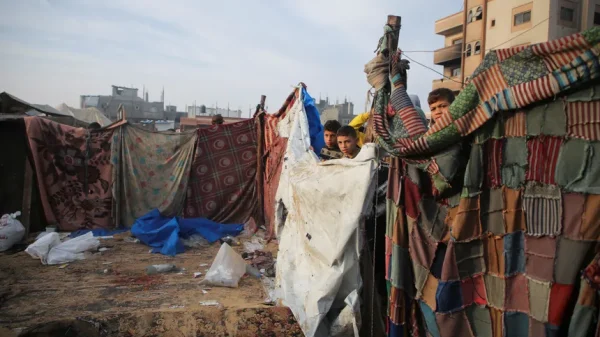The Taliban government in Afghanistan has recently issued a comprehensive set of laws aimed at promoting virtue and preventing vice, which is expected to have a profound impact on the daily lives of Afghans, particularly women and girls. The 114-page document outlines strict guidelines for personal conduct, dress code, and social interactions, which are likely to restrict freedom and curtail personal choices. The laws were approved by the supreme leader, Hibatullah Akhundzada, and were published by the Ministry for the Propagation of Virtue and the Prevention of Vice.
The laws focus on regulating every aspect of daily life, from what women are allowed to wear to what they are allowed to do in public. Article 13 requires women to veil their bodies at all times in public, and a face covering is deemed essential to avoid temptation and tempting others. The laws also dictate that clothing should not be thin, tight, or short, and Muslim women are obligated to cover themselves in front of non-Muslim males and females to avoid being corrupted. Moreover, a woman’s voice is considered intimate and thus should not be heard singing, reciting poetry, or reading aloud in public. It is also forbidden for women to look at men they are not related to by blood or marriage, and vice versa.
The laws also prohibit the publication of images of living beings, a move that threatens the already fragile Afghan media terrain. Article 19 bans the playing of music, the transportation of solo female travelers, and the mixing of men and women who are not related to each other. Additionally, the law obliges passengers and drivers to perform prayers at designated times. These restrictions are likely to exacerbate the already dire humanitarian situation in Afghanistan and may lead to further erosion of human rights and freedoms.

A Grim Outlook for Women’s Rights and Freedoms in Afghanistan (Image via Getty)
The international community, including the United Nations, has raised concerns over the Taliban’s latest move. The UN reported that the Ministry for the Propagation of Virtue and the Prevention of Vice is contributing to a climate of fear and intimidation among Afghans. The ministry’s role is expanding into other areas of public life, including media monitoring and eradicating drug addiction. Fiona Frazer, the head of the human rights service at the UN mission in Afghanistan, expressed alarm over the development, saying that the expansion of the ministry’s oversight gives cause for significant concern for all Afghans, especially women and girls.
The Taliban’s strict interpretation of Islamic law is likely to have far-reaching consequences for the daily lives of Afghans. Women and girls are already facing numerous challenges in a country plagued by poverty, conflict, and economic instability. The move is likely to limit their freedom and curtail their personal choices, leading to further erosion of human rights and freedoms. The international community must continue to monitor the situation and advocate for the protection of human rights in Afghanistan.


























